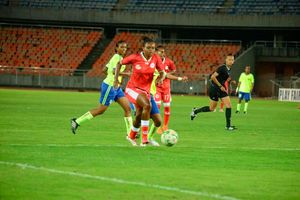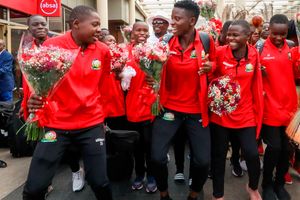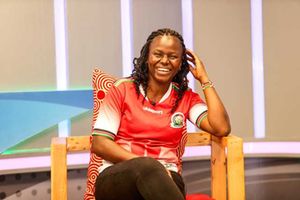
The secondary school games, which are supposed to be a platform for developing young talent, are facing a crisis of credibility.
The 2024 Secondary School Games have been marred by allegations of cheating, raising concerns that coaches and teachers entrusted with developing young talent are conspiring to undermine the very system they're supposed to uphold.
The culprits are driven by the prestige that comes with winning the championships, which leads them to pursue victory at all costs. While the Ministry of Education doesn't offer financial rewards, Nation Sport has learned that school principals see winning as an opportunity to raise the profile of their schools through extra-curricular activities.
This takes the form of coaches and teachers colluding with schools to field either over-age players or players irregularly recruited from other institutions specifically for the games, which works against long-term player development. Legitimate students are denied the chance to compete fairly and develop their talents.
In the Kisumu County Secondary Schools Term Two matches held at Maseno School on May 15, Katolo Secondary School was found guilty of fielding an ineligible player in the football match against Kisumu Day Secondary School. Kisumu Day, who lost 1-0 to Katolo in the semi-finals, successfully appealed the result.
Katolo was disqualified and Agai played Kisumu Day in the final on June 21 at Maseno School, where Kisumu Day won 2-0 to qualify for the regional championship to be held in Kisii next month.
Documents obtained by Nation Sport show that two Katolo players played under false identities, pointing to a case of impersonation.
The documents show that they had previously played in the Football Kenya Federation Division Two league under different names before being recruited to play for the school.
St Mark Obambo of Kisumu West Sub-county were also disqualified from the semi-finals because some of their players did not have Kenya Certificate of Primary Education certificates during the screening process.
Similarly, Onjiko Boys of Nyando Sub-county were disqualified from the sub-county matches for fielding an ineligible player.
In Siaya County, Uranga Secondary School was disqualified from the preliminary round for fielding an ineligible player.
Uranga had competed against Argwings Kodhek and were due to play St Mary's School Yala, who made a successful appeal against them.
In Kisii County, Ndonyo School of South Mugirango constituency lost 1-0 to Sameta High in the boys' football final, but Ndonyo has lodged a complaint that Sameta broke competition rules by fielding more than five players over the age of 19.
If the allegation is proven, Sameta could be disqualified from the competition, handing the title to Ndonyo.
A similar situation is unfolding in Nyamira County, where the semi-finalists in the boys' football competition have yet to be decided due to appeals lodged by teams against each other. The teams are Gekendo, Gesure, Gekano and Gekomoni. These appeals are likely to hinge on issues of player eligibility, raising concerns about the prevalence of the problem across the counties.
In Kakamega, the eligibility of the Musingu High School athletics team is under scrutiny following a complaint by Dr Julius Mambili, the headmaster of Kakamega High School.
In a letter to the chairman of the Kakamega County Kenya Secondary Schools Sports Association, Dr Mambili raises concerns about the recent transfer of nine students to Musingu without following the transfer procedures stipulated in the Education Act of 2013, which requires such players to have signed transfer forms.
In the letter, Mambili highlights a rule which states that a maximum of two pupils can be transferred between school sports teams, and any more than that should face a one-year ban.
On the eligibility of players, the constitution of the Kenya Secondary Schools Sports Association stipulates that students should not be older than 19.
It also stipulates that players in all teams must be bona fide students who have been in their respective schools for at least 90 days before the start of the sub-county preliminary rounds, except for Form One.
Read also: Johnmark Makwata: Deadly marksman on football mission towering in nine clubs in four countries
Students who have completed their Form Four examinations are not considered to be continuing students and any repeater at any level is not eligible to play in the year of repeating.
The number of pupils transferring from one school team to another is fixed at a maximum of two, but if there are more than two, they are ineligible for a period of one year.











